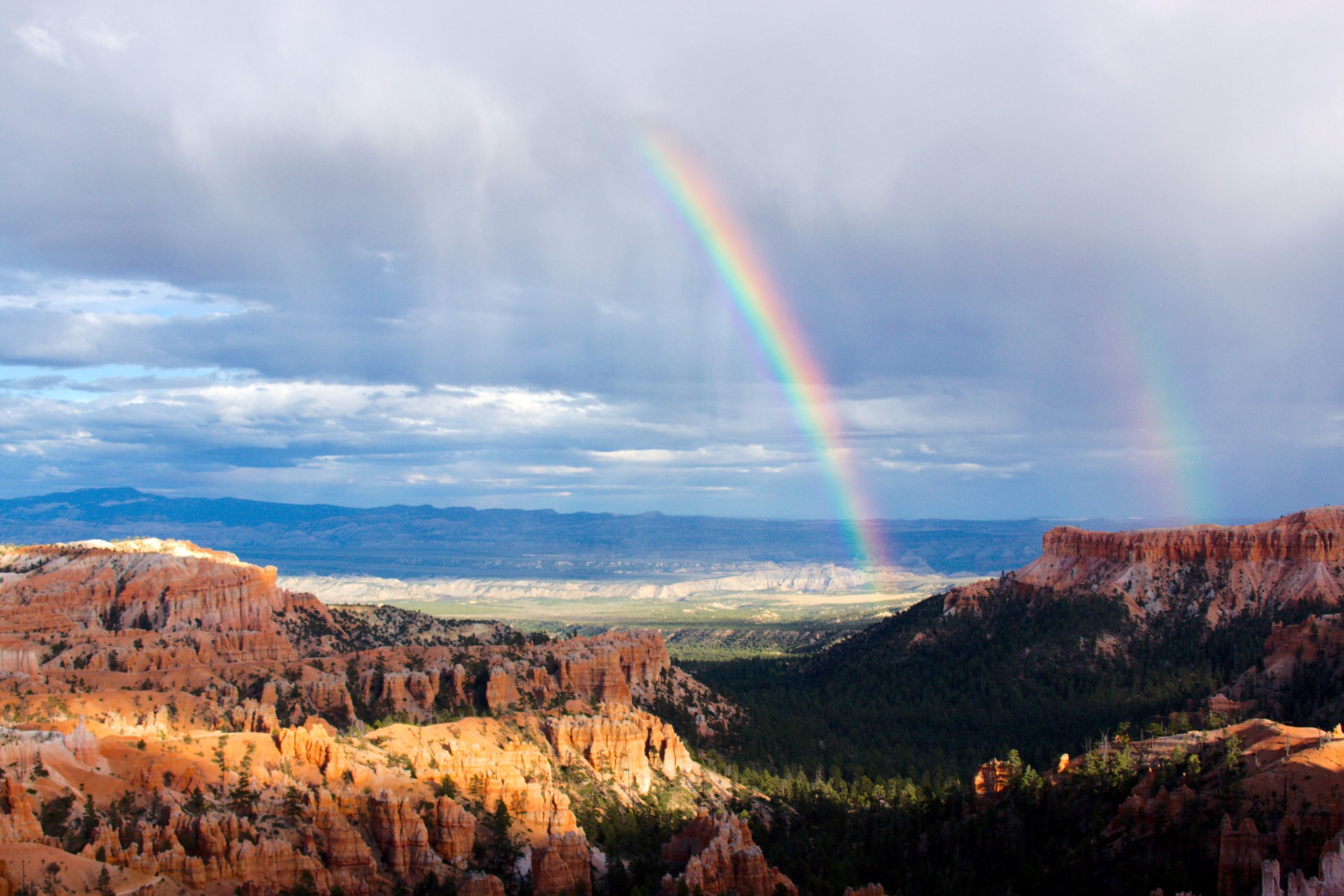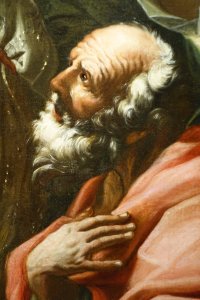God’s Promise to Abraham and the Land of Canaan

The call of Abraham is the beginning of a story of holiness, mission, and community. Abraham left a legacy that affects all believers today. He became a “model for living as a sojourner in a foreign land.”
Abraham’s legacy as a model of a believer living as a sojourner in a foreign land is based in part on God’s promise to Abraham. At the time God called Abraham, God told Abraham to leave his country, his people and his father’s household and go to the land he would show him (Genesis 12:1).
Abraham left Haran and came to Canaan at the call of God. When Abraham came to Canaan, he “traveled through the land” (Genesis 12:6). In Shechem God promised Abraham: “To your offspring I will give this land” (Genesis 12:7).
The descendants of Abraham would be the heirs of what God had promised to him, but the promise was made to Abraham: he would receive the land. More than once God promised that he would give the land to Abraham himself:
“All the land that you see I will give to you and your offspring forever” (Genesis 13:15).
“Go, walk through the length and breadth of the land, for I am giving it to you” (Genesis 13:17).
“He also said to him, ‘I am the Lord, who brought you out of Ur of the Chaldeans to give you this land to take possession of it’” (Genesis 15:7).
“The whole land of Canaan, where you are now an alien, I will give as an everlasting possession to you and your descendants after you; and I will be their God” (Genesis 17:8).
God’s promise to Abraham was renewed to Isaac. At the time of the famine in Canaan, God told Isaac not to go to Egypt, and then made him this promise: “Stay in this land for a while, and I will be with you and will bless you. For to you and your descendants I will give all these lands and will confirm the oath I swore to your father Abraham” (Genesis 26:3). The promise to Isaac was that God would give to him, Isaac, and to his descendants, the land God promised to give to Abraham.
Then, the same promise was made to Jacob. At the time Jacob was fleeing from his brother Esau, God appeared to Jacob in a vision and promised to give him the land of Canaan. The Lord spoke to Jacob and said: “I am the Lord, the God of your father Abraham and the God of Isaac. I will give you and your descendants the land on which you are lying” (Genesis 28:13).
Each of the patriarchs received a promise from God that they, Abraham, Isaac, and Jacob, would receive the land in which they lived. Throughout their lives, the patriarch lived as sojourners in the land God promised to give to them. Abraham “traveled through the land,” “pitched his tent” here and there, moved from one place to another, walking through the length and breadth of the land as if claiming the land God had given to him.
Several days ago, I read an article in which the writer was discussing God’s promise that Abraham would receive the land of promise. He wrote: “Abraham died before seeing the fulfillment of God’s promise of the Land of Canaan. It was for later generations to experience the gift of the land. Abraham spent his days moving around the land of Canaan living as a stranger in a strange land.”
However, if Abraham died before receiving the land, what then of God’s promise? God promised Abraham: “Go, walk through the length and breadth of the land, for I am giving it to you” (Genesis 13:17). And how about God’s promise to Isaac and to Jacob that they too would receive the land? Did the patriarchs die without receiving God’s promise?
There is, however, another way of understanding the fulfillment of the promise God made to the patriarchs. When Sarah died in Hebron, Abraham bought a parcel of land in Canaan (Genesis 23). In his dealings with the owners of the land, Abraham bought a cave in which to bury Sarah and a large field with many trees in it.
When looked at from the perspective of God’s promise to Abraham, the purchase of the cave of Machpelah is very significant. The writer of Genesis is emphasizing that Abraham became the owner of a portion of the land of Canaan legally, the same land that one day would belong to his descendants. In fact, the plot of land became the final resting place for the patriarchs and their wives. On the land Abraham bought to bury Sarah, he was buried. In addition, there Isaac and Rebecca, Jacob and Leah were also buried (Genesis 49:29-32).
In his book Old Testament Theology. Volume 1: Israel’s Gospel, John Goldingay wrote (2003:232-33): “Abraham and Sarah do come into secure legal possession of land in Canaan, even if it is a burial possession. It is a mere foothold, or rather skeleton-hold, in the land, but it means that Sarah, and in due course Abraham, Isaac, Leah and Jacob, will be able to rest there forever in the land Yhwh promised.”
God’s promise to give Abraham the land of Canaan raises a question: Can God’s promises be trusted? The narrative about Sarah’s death fits well within the perspective of God’s covenant with Abraham. Gerhard von Rad, in his commentary on Genesis, wrote (1961:245): “Did the patriarchs who forsook everything for the sake of the promise go unrewarded? No, answers our narrative. In death they were heirs and no longer ‘strangers.’ A very small part of the Promised Land, the grave, belonged to them.”
The writer of Genesis is showing that Abraham came into possession of the land as a gift from God, as evidence that God’s promise was already being fulfilled in the days of Abraham. In the New Testament, Paul says that the presence of the Holy Spirit in the hearts of believers is a “deposit, guaranteeing what is to come” (2 Corinthians 1:22). In death, the patriarchs received a portion of the land, and that burial ground became a deposit, guaranteeing what was to come,
BIBLIOGRAPHY
John Goldingay, Old Testament Theology. Volume 1: Israel’s Gospel. Downers Grove: InterVarsity Press, 2003.
Gerhard von Rad, Genesis. Philadelphia: The Westminster Press, 1961.
Claude Mariottini
Emeritus Professor of Old Testament
Northern Baptist Seminary
NOTE: Did you like this post? Do you think other people would like to read this post? Be sure to share this post on Facebook and share a link on Twitter or Tumblr so that others may enjoy reading it too!
I would love to hear from you! Let me know what you thought of this post by leaving a comment below. Be sure to like my page on Facebook, follow me on Twitter, follow me on Tumblr, Facebook, and subscribe to my blog to receive each post by email.
If you are looking for other series of studies on the Old Testament, visit the Archive section and you will find many studies that deal with a variety of topics.





